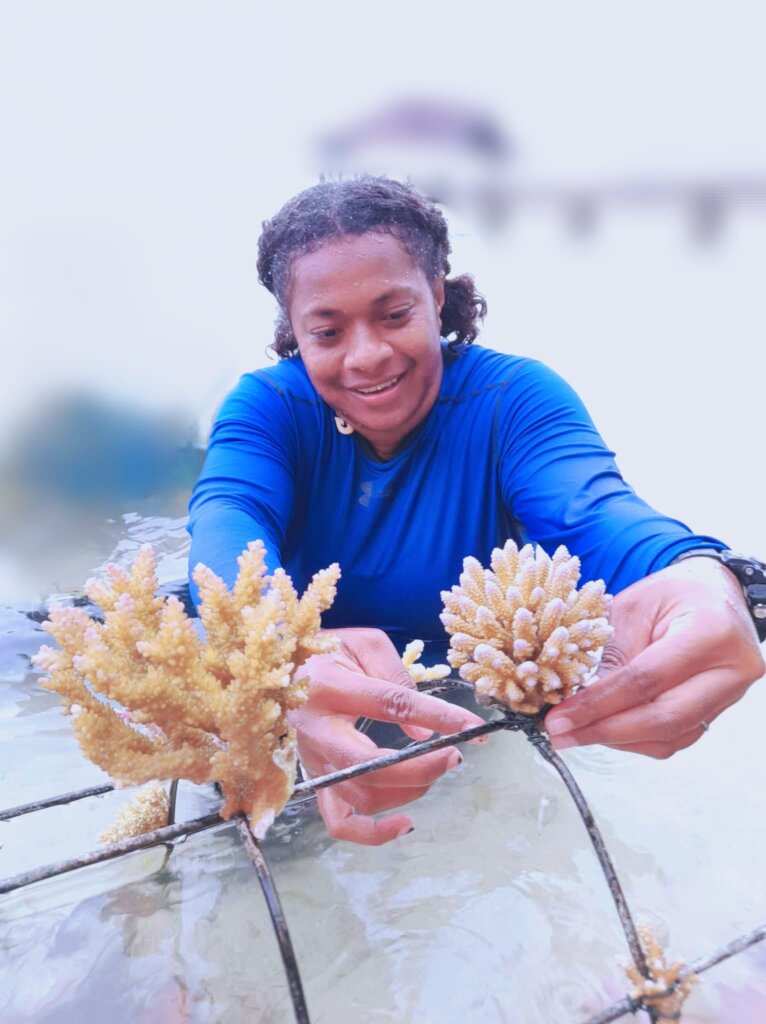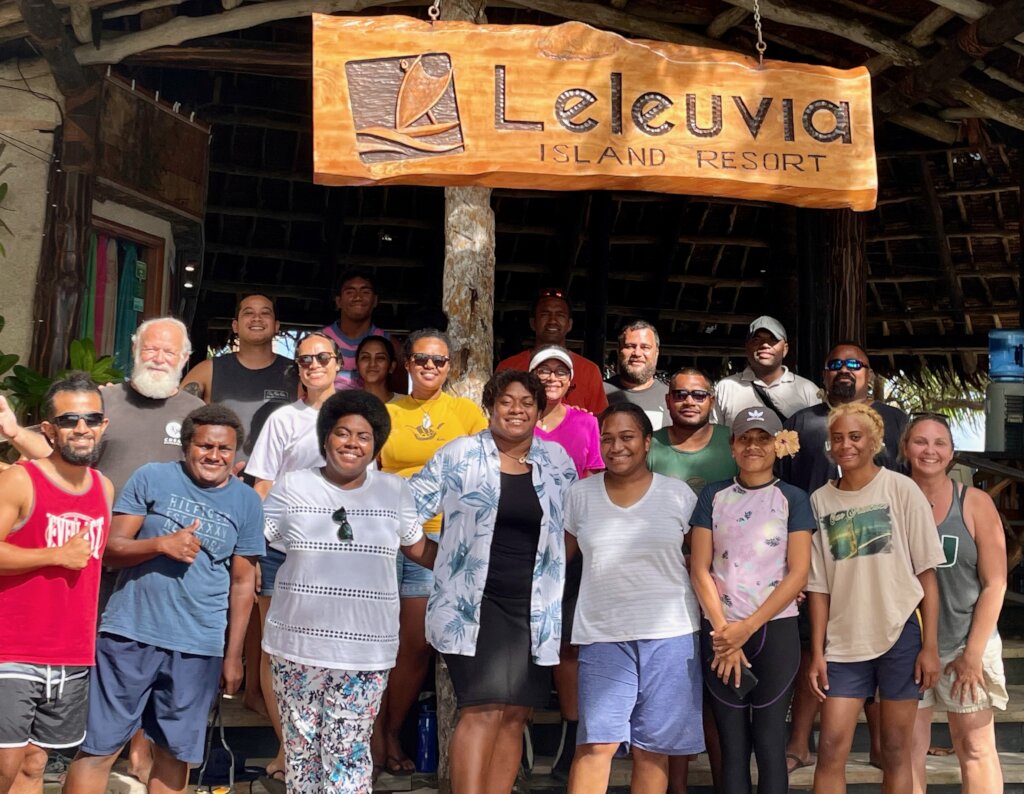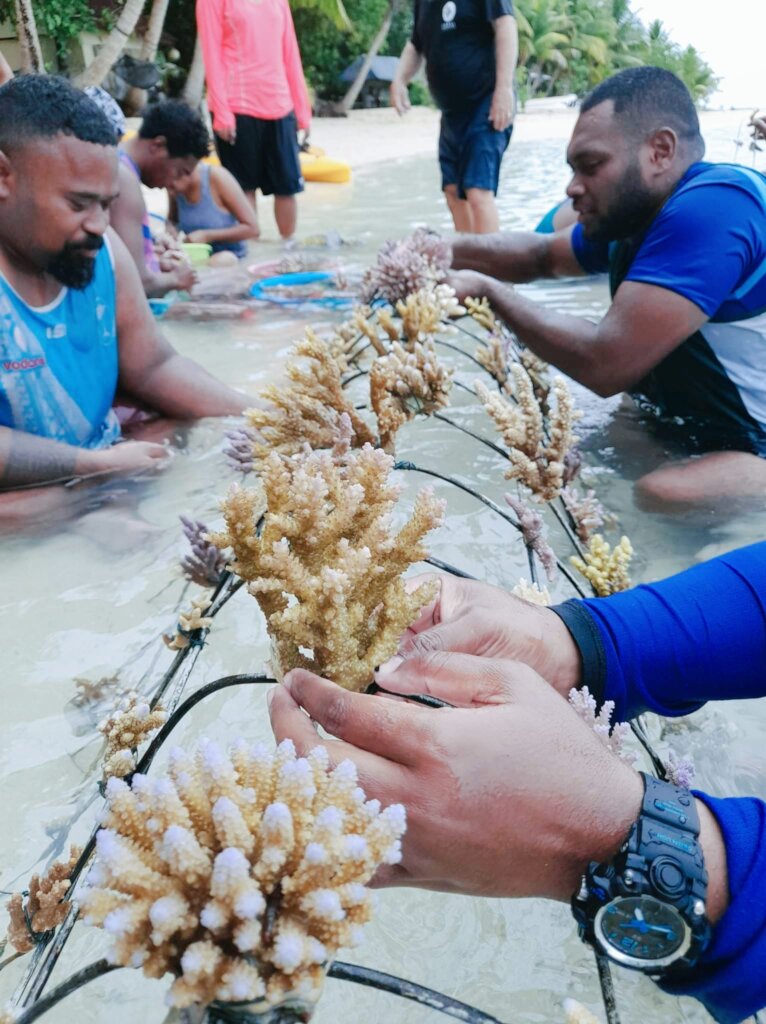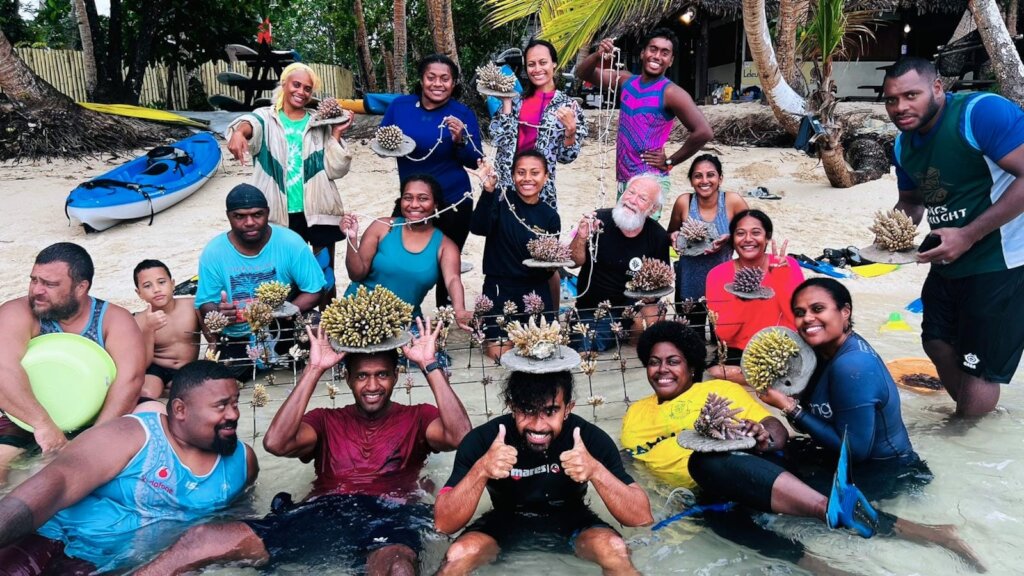This year we had a record number of volunteers with as many as nine at a time in the site from several countries! With all the extra hands we accomplished a lot of work in the coral nurseries. Our volunteers were also instrumental in refining our training curriculum. Four major workshops were completed in the past quarter for 90 people in total! In May and June, we conducted one-week "coral champions" workshops with a Fiji focus, training ten fisheries officers, NGO staff, and recent marine biology graduates. In August, we carried out an international workshop that included 7 from Papua New Giuinea, 5 from Samoa many more from Fiji, and even some from Germany, USA, and Australia. Thanks to funds given by UNEP and DFAT, airfares into Fiji and workshop expenses were all covered. During this wokrshop were able to establish a whole new site in the east of Fiji a hundred miles distant from the Malolo sites, at Leleuvia island, thanks to the additional funding! In early November, a workshop focused on coral restoration for climate change adaptation and the tourism industry was held using funds from the US Embassy. This workshop trained 8 Fijian participants already working in the tourism industry and 8 more marine science university graduates who are currently unemployed. Attending the workshop gave these enthusiastic coral champions field experience and will boost their CV's.
An Amazing Number of Corals trimmed and planted in the Outer Barrier Reef Gene Bank:
At the workshops volunteers trimmed the amazing numbers of corals in the gene bank nurseries and used all of these excess corals to establish two new sites in the outer barrier reef. The area is 14km long by several hundred km wide. The entire backreef had been badly degraded by mass bleaching and cyclones in years past. Larger corals and branches were densely planted onto A-frames to create instant fish habitat within "nucleation patches", rather than planting small corals over wider areas. The fish moving into the corals will help keep the corals free of algae, sand, and silt, and help the corals grow well. The fish will hopefully also clean the areas surrounding the corals and cause the bare clean rocks to attract incoming coral larvae, so the coral patches will grow over time. With two sites complete, we plan to establish as many as we can over the coming months, and well before the hot coral bleaching season, which starts in January.
Outer Reef Sites Tested by Mother Nature's Big Waves: Lessons Learned
The first of our new outer reef sites was established in an area where every month or two, some very big waves roll over the site. This was done intentionally, in order to test our methods against cyclones, which will inevitably impact all of the outer reef. The other sites are not nearly so high energy, and will only experience such big waves during cyclones, but we need to learn what methods are able to withstand cyclone waves and currents. A few weeks after we put in the A-frames, fish house structures, and other methods, HUGE waves hit the site, and several A-frames flipped and several rope outplant trials were destroyed. Fortunately, none of the cemented corals were impacted, neither were the A-frames anchored into the reef framework. We have used these lessons to further harden the site and to learn methods that will resist cyclones in the other more protected areas of the restoration zone.
Major Milestone with Bleaching-resistant Super Corals Sharing Resistant Super-Algae:
So this is a major milestone: our bleaching resistant super corals are finally being moved onto the cooler outer barrier reef! This will allow them to share their resistant algae with other corals, and spread the resilience to incoming coral larvae, which come in without their symbiotic algae. So now there is a source of resistant super-algae on the outer reef, which can be shared! When the next marine heat wave arrives and mass bleaching hits, our corals and hopefully the juvenile corals that settle nearby, will not bleach!
Implementation of our Coral Adaptive Strategies are Yielding Valuable Data with World-wide Significance:
Much progress is being made with our cooler outer-reef stategies which can ultimately add decades to coral reef and species survival. The richness of the entire marine ecosystem is vital--Corals for Conservation is proving that a mono-culture coral bed is not the answer. Interest in our discoveries and practical low-cost/ high indigenous community involvement model is getting attention throughout the South Pacific. The demand for the training sessions is very high. While additional resources are now coming in, they are not sufficient for the increased workload and for giving stipends to marine biology graduates.
Upcoming giving opportunities: On #GivingTuesday, November 29th, your gifts up to $2,500 all receive a bonus.
Announcing HOPE FOR CORALS: Starting January 1st and ending March 31st, your gifts of any amount will receive an astounding 300% bonus. An incentive fund of $10,000 has been made available to Corals for Conservation by GlobalGiving in part because our work answers an urgent need for mankind and the corals which bring life. Without GlobalGiving and donors like you, we would not be able to continue!
Vinaka Vakalevu!
Austin
About this project:
Coral reefs are predicted to die out within 30-50 years from intense marine heat waves. Reefs of Hope is a revolutionary intervention to rescue heat resistant "super corals", found at the upper limit of possible survival, and in danger of dying out in the face of Global Warming. Samples of these heat adapted corals are moved to the safety of cooler outer reef areas, creating heat resistant breeding populations of corals, which in turn accelerate natural coral adaptation and recovery processes.



